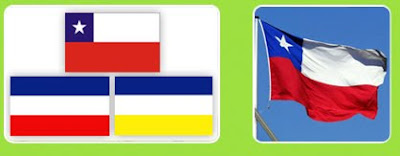Syria: UN humanitarian chief says no progress made on access to hard-to-reach areas
3 December 2013 – Reporting “modest progress” with the Syrian Government on speeding up visa issuance and increasing the number of relief distribution hubs, a top United Nations official said today that with perhaps 250,000 Syrians cut off from aid in besieged communities across the war-torn country, greater efforts are needed to ensure real gains on the humanitarian front.
“I advised the Security Council that we have seen some modest progress in terms of administrative procedures that had been put in place over time,” said Valerie Amos, the Under-Secretary-General for Humanitarian Affairs and Emergency Relief Coordinator, as she spoke to reporters after briefing the 15-member body on the humanitarian situation in Syria.
This is her second closed-door meeting with the Council since it adopted, on 2 October, a Presidential Statement urging the Syrian Government to immediately allow humanitarian access to relieve the plight of civilians trapped by heavy fighting, including cross-line aid deliveries.
The statement, which called on all parties to the conflict to agree on humanitarian pauses in the fighting, with special attention to key delivery routes, also deplored the escalating violence in a conflict that has killed more than 100, 000 people and driven some 6.5 million others from their homes since opposition protesters first sought to oust the Government of President Bashar al-Assad in March 2011.
On the implementation of the statement, Ms. Amos cited progress, for example, in the Government’s decision to grant some 50 visas on an individual basis.
Damascus has also given the UN Office for the Coordination of Humanitarian Affairs (OCHA) permission to open three additional relief hubs, “but only two of these will actually be helpful to us, because the third being proposed – Al Sweida – will not allow us access into Western Dera'a, which is where the hard-to-reach communities are.”
She also noted that both the Government and the opposition had indicated who the interlocutors are for the UN to try to facilitate humanitarian access.
“However, I did remind the Council that on some of the more difficult areas – protection of civilians, de-militarization of schools and hospitals, access to besieged communities and also cross-line access to hard-to-reach areas – we have not seen any progress.
“I need the Council to continue to make it absolutely clear that targeting civilians is against international humanitarian law and that we need to do greater work to ensure that the recommendations in the Presidential Statement are achieved,” she declared.
Responding to questions, Ms. Amos said that an estimated 250,000 civilians are trapped in besieged communities, while perhaps some 2.5 million were in hard-to-reach areas – places that aid workers have been able to reach but not frequently enough to make any real headway against the overall needs.
Asked if a Council resolution – which carry legal obligations for UN Member States ¬– would improve the situation, Ms. Amos said: “My focus is on how what has already been agreed can be put into effect. Should the Council agree on a resolution, then we will operationalize that.”
Indeed, while the UN and its partners have made gains in reaching civilians across the strife-riven country, in the context of the scale of the crisis, “this is far too few to meet the needs of the people. Of course the issue is what is the best means to reach people in need? For me, the unity of the Security Council is the key here.”
Meanwhile, UN agencies continue pressing ahead with relief efforts, now rushing to fortify desperate civilians against the oncoming winter season.
Briefing the press in Geneva today, Marixie Mercado, spokesperson for the UN Children’s Fund (UNICEF) warned: “The scale of the humanitarian response needed for the looming winter is unprecedented, as the number quadrupled as compared to the previous year.”
She explained that in December 2012, there were approximately 1.15 million children affected by the crisis inside Syria, with an additional 232,000 Syrian children living as refugees in neighbouring countries.
As the conflict approaches its fourth year, those numbers have skyrocketed to 4.3 million and 1.2 million, respectively. UNICEF has been working since early October to equip children as quickly as possible for the cold. Blankets, plastic sheeting, winter clothing and hygiene kits are being distributed, along with winterized tents and fuel to heat classrooms.
For its part, the UN High Commissioner for Refugees (UNHCR) has commenced an emergency airlift of urgently needed winter supplies to reinforce its stockpile in northern Iraq with relief items for up to 50,000 vulnerable Syrians. A UNHCR-chartered Boeing 777 landed at Erbil airport on Monday carrying 90 metric tons of relief items to help 4,400 families over the winter months, including plastic tarpaulins, thermal blankets, sleeping mats, jerry cans and kitchen sets.
“While UNHCR has adequate stocks inside Iraq to meet the immediate needs, we want to ensure that sufficient items are on-hand to address any developments,” said UNHCR's Amman-based Director for the Middle East and North Africa, Amin Awad. "The relief items we are airlifting will reinforce the UNHCR-led winterization regional response as temperatures are starting to drop across higher altitude areas in the Syria region.”
Elisabeth Byrs, spokesperson for the World Food Programme (WFP), told reporters that the agency dispatched enough food for over 3.4 million people inside Syria in November, mainly to internally displaced families in 13 governorates, and had reached eight more locations, which had been inaccessible in recent months.
However, she said WFP remains gravely concerned about the fate of many Syrians still trapped in conflict zones throughout the country, including around Damascus and in Al Hassakeh, where some areas have been without food assistance for six consecutive months.
WFP aims to reach 4 million people inside Syria every month, as well as to provide assistance for nearly 1.5 million refugees in neighbouring countries.

Comentarios